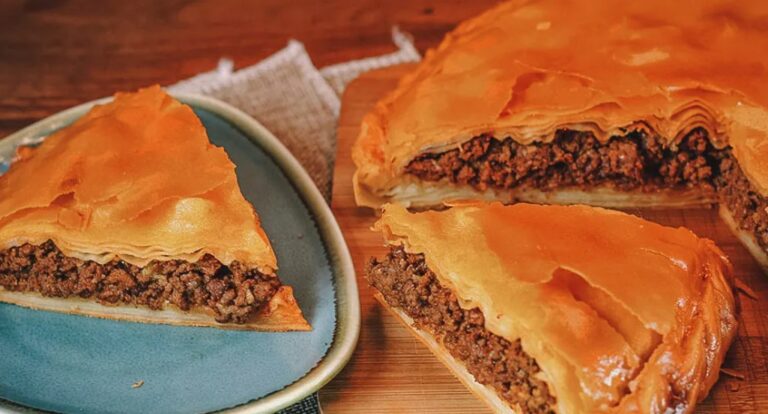Introduction: Exploring Albanian Cuisine
Albanian cuisine is a mix of Mediterranean and Balkan flavors, with a focus on fresh and seasonal ingredients. With its rich history and cultural influences, Albanian cuisine has a variety of dishes that are unique and flavorful. From savory pies and stews to grilled meats and fresh seafood, Albanian cuisine has something for everyone.
Religious Influences on Albanian Cuisine
The predominant religion in Albania is Islam, which has some dietary restrictions. Pork is not consumed by Muslims, but it is also not a significant part of Albanian cuisine. On the other hand, some Albanians are Orthodox Christians, who follow certain fasting periods where they abstain from meat and dairy products. During these fasting periods, Albanian cuisine offers a variety of vegetarian and vegan options.
Vegetarian and Vegan Options in Albanian Cuisine
Albanian cuisine offers a variety of vegetarian and vegan options, especially during religious fasting periods. Some of the popular vegetarian dishes include fasule (bean stew), byrek me spinaq (spinach pie), and pite me mish pule (chicken pie). Albanian cuisine also has a range of vegan dishes that are hearty and flavorful, such as tave kosi (baked lamb with rice and yogurt sauce) and pule me oriz (chicken with rice).
Dairy and Meat in Albanian Cuisine
Dairy products, such as cheese and yogurt, are commonly used in Albanian cuisine. Feta cheese, made from sheep’s milk, is a staple in Albanian cuisine and is used in many dishes. Meat, particularly lamb and beef, is also a significant part of Albanian cuisine. Grilled meats, such as qebap (grilled meatballs) and biftek (steak), are popular dishes in Albania.
Spices and Flavors in Albanian Cuisine
Albanian cuisine is known for its bold and flavorful spices. Some of the most commonly used spices include oregano, thyme, paprika, and cumin. Albanian cuisine also uses a lot of fresh herbs, such as parsley and dill, to enhance the flavor of dishes. Lemon juice and garlic are also used to add a zesty and tangy flavor to dishes.
Cultural Practices and Albanian Cuisine
Albanian cuisine is deeply rooted in cultural practices and traditions. It is customary to share meals with family and friends, and hospitality is an essential part of Albanian culture. Albanian cuisine also has a variety of dishes that are specific to certain regions, such as the famous flija (layered pancake) from the northern part of the country.
Food Allergies and Albanian Cuisine
While Albanian cuisine does not have specific dietary restrictions, it is essential to communicate any food allergies or intolerances when dining in Albania. Most restaurants and chefs are accommodating and can modify dishes to fit specific dietary needs.
Conclusion: Diversity and Delicacies of Albanian Cuisine
Albanian cuisine is a reflection of the country’s rich history and cultural influences. With a variety of dishes that cater to different dietary needs and preferences, Albanian cuisine is full of diversity and flavor. From hearty meat dishes to delicate vegetarian options, Albanian cuisine is sure to satisfy any food lover.

